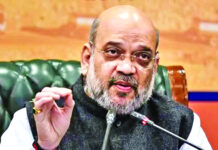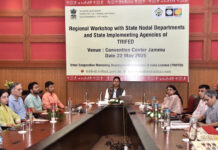The Jammu and Kashmir and Ladakh High Court quashed an order holding that the Divisional Commissioner (DivCom) does not have the powers of a magistrate. Therefore, they cannot issue orders under section 144 of CrPC. Neither Divcom nor the Deputy Director of Economics and Statistics under his office has the powers of a magistrate. Along with this, the High Court quashed the order issued by the Kashmir Divisional Commissioner and Deputy Director (E&S), in which a plastic unit was asked to be closed due to pollution.
Justice Sanjeev Kumar said that only the concerned authorized magistrate or authorized agency could take action against the unit located at Kaimoh Kwaki market in the Kulgam district. After hearing both the parties, the court said that the State Government has especially empowered the District Magistrate, Sub Divisional Magistrate and Executive Magistrate to exercise the powers of Section 144 of CrPC.
It does not include Deputy Directors working with Divcom and their offices. However, the court said that because of any danger to public life and emergency, the authorized magistrate could impose 144. Its order remains in effect for two months, after which the government can issue a notification to extend it.
In this case, the petitioner collects, stores and segregates the plastic on his proprietary land. Due to this, pollution comes under the purview of the Water Pollution Prevention Act 1974 and Air Pollution Act 1981, on which Divcom cannot issue orders.



























